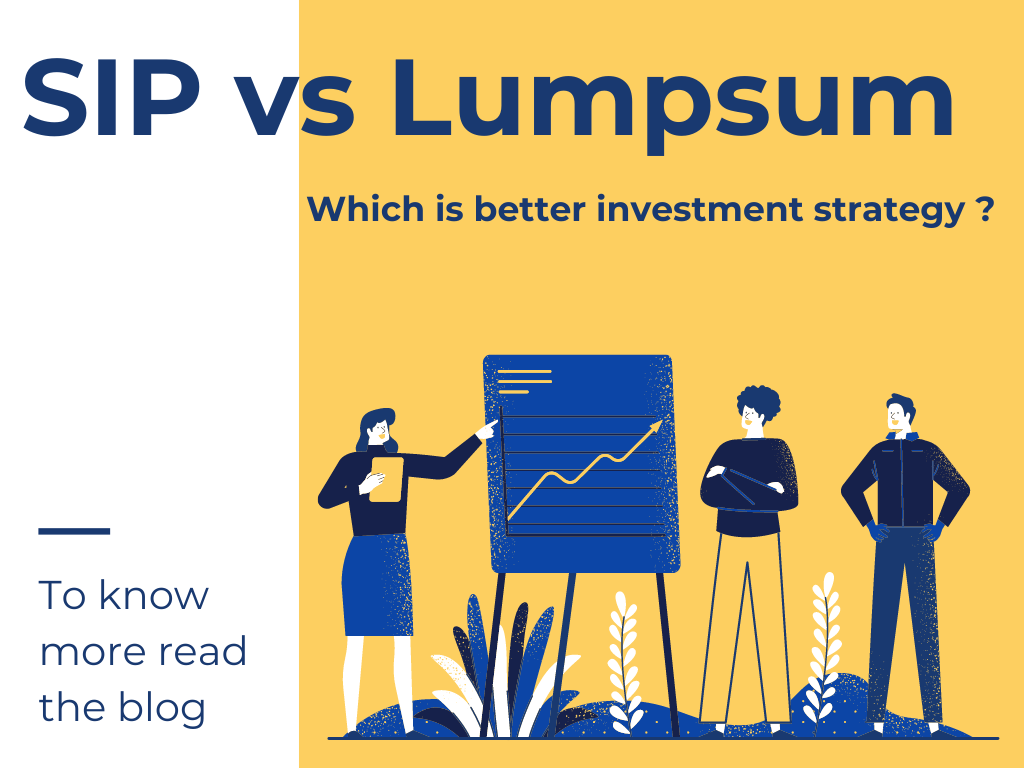SIP vs Lumpsum – Which is Better Investment Strategy
The choice between SIP (Systematic Investment Plan) and lump sum investment depends on various factors, including individual preferences, financial goals, market conditions, and risk tolerance. Here's a comparison to help you understand the differences and consider which strategy may be better suited for your investment needs:
SIP (Systematic Investment Plan):
Regular investment: SIP involves investing a fixed amount at regular intervals, typically monthly or quarterly. It promotes disciplined investing and helps in averaging the cost of investment over time.
Rupee-cost averaging: With SIP, investors buy more units when prices are low and fewer units when prices are high. This reduces the impact of short-term market fluctuations on the overall investment and potentially lowers the average cost of acquisition.
Smaller investment amounts: SIP allows investors to start investing with smaller amounts, making it more accessible for individuals with limited funds.
Lower risk: SIP spreads the investment over a period, reducing the risk of investing a lump sum at an unfavorable time.
Long-term focus: SIP is ideal for long-term goals where investments can be made systematically over an extended period, harnessing the power of compounding.
Lump sum investment:
One-time investment: Lump sum investment involves investing a significant amount in a single transaction.
Potential for immediate returns: With lump sum investment, you have the potential to benefit from immediate market movements and returns if the investment performs well.
Market timing: Lump sum investing requires making a decision on the timing of the investment. This can be challenging, as it's difficult to predict short-term market movements.
Higher risk: Lump sum investments are exposed to the risk of investing a large sum at an unfavorable time, particularly during market downturns.
Suitable for specific situations: Lump sum investments may be suitable for those who have a windfall gain, a lump sum cash inflow, or a short investment horizon.
Which is better?
The "better" strategy depends on your personal circumstances and investment goals. Here are a few considerations:
SIP is suitable for regular, disciplined investing, long-term goals, and individuals who want to mitigate short-term market volatility.
Lump sum investment may be suitable if you have a significant amount of funds available, have a shorter investment horizon, or believe in market timing.
It's important to note that diversification, asset allocation, and investment fundamentals are crucial regardless of the investment strategy chosen. Some investors also choose a combination of SIP and lump sum investments to balance their approach.
Consider consulting a financial advisor who can assess your specific financial situation, goals, and risk tolerance to provide personalized guidance on the investment strategy that aligns best with your needs.


